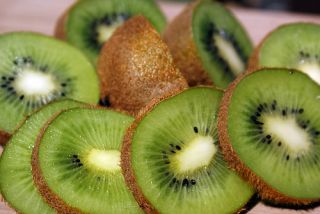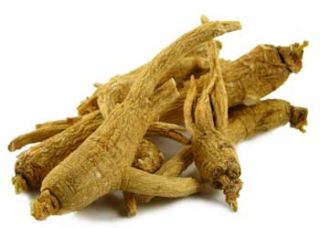Stress
Natural Energy-Boosting Treatments
Natural remedies can help fight chronic fatigue
Posted August 3, 2012

If you’re like most Americans, your schedule is probably packed. You most likely lead a hectic lifestyle that involves working long hours, driving your children to soccer practice, and trying to get in your daily exercise. Just remembering to walk the dog or call your mother is tough, let alone getting enough sleep, so you decide to rely on caffeine and adrenaline to get you through the week.
Although feeling stressed out and exhausted from time to time is common, if you experience these symptoms all the time, you may have a condition called chronic fatigue syndrome (CFS). This disorder causes extreme fatigue and may not improve even with plenty of bed rest. The flu-like symptoms associated with the disorder may last for years. The U.S. Centers for Disease Control and Prevention (CDC) discovered the disease in 1988, but the cause still remains unknown.
CFS is believed to occur after an infection or a period of high stress. Although the illness may develop at any point in life, the CDC reports that it is most common among people who are 40 to 59 years old. Occasionally, CFS is seen in members of the same family, though there is no scientific evidence to suggest that the condition is contagious. Instead, researchers suspect that there may be a genetic link to the disorder, although more research is needed to confirm this.
Women are diagnosed with CFS two to four times more often than men, but it is unclear whether this is because the illness affects more women or because more women report the condition to their doctors, compared to men.
According to the CDC, about one million Americans have CFS. This disease affects more Americans than multiple sclerosis, lupus, lung cancer or ovarian cancer.
Many natural and alternative therapies have been studied in the treatment of CFS, although more research is needed to support their effectiveness in managing this condition.
One such treatment is ginseng. The word "ginseng" is derived from ren-shen, the Chinese word meaning "essence of the earth in the form of a man" or "man-root," referring to the root's human-like shape. Ginseng has been used in traditional Chinese medicine (TCM) for more than 2,000 years and is believed to increase appetite and strength, as well as enhance memory and physical performance. It is also thought to help reduce fatigue and stress and improve overall quality of life.
When you shop at the supermarket, you may run into a popular fruit that has also been studied for the treatment of fatigue: the kiwi. The kiwi fruit initially comes from China, but is now produced in New Zealand, the United States, Italy, South Africa and Chile. It is rich in vitamin E, serotonin, and potassium, and is known to have the highest density of vitamin C for any fruit. It has been studied for its lung and heart health benefits, but is also thought to enhance energy.

Then there are the ever popular omega-3 fatty acid supplements, which are well-known for benefiting the heart and protecting against high cholesterol. Omega-3s, which are found in fish oils and plant and nut oils, have also been studied for improvement in energy and metabolism. However, more research is needed before a conclusion can be made.
Another alternative treatment suggested for fatigue is relaxation therapy. Relaxation techniques include behavioral therapeutic approaches that differ widely in philosophy, methodology, and practice. The primary goal is usually nondirected relaxation. Most techniques share the components of repetitive focus (on a word, sound, prayer phrase, body sensation, or muscular activity), using a passive attitude towards intruding thoughts, and return to the focus in order to relieve stress. It has been proposed that frequent stressful situations may lead to negative effects on health, such as high blood pressure, raised cholesterol levels, gastrointestinal distress, or depression of the immune system.
Although these natural therapies have provided promising results for some fatigue sufferers, it is important to note that each has a Natural Standard evidence grade of C. This indicates that there is unclear or conflicting scientific evidence in support of their effectiveness for the treatment of chronic fatigue, and more research is needed to confirm the potential benefits.
Remember to consult a doctor or pharmacist before starting any new regimen, herbs, or supplements. A medical professional can help you decide the best course of treatment for your fatigue.
Alternative therapies may be a great way to relieve your exhaustion and help improve your well-being so that you can go about your day feeling strong and energized.




